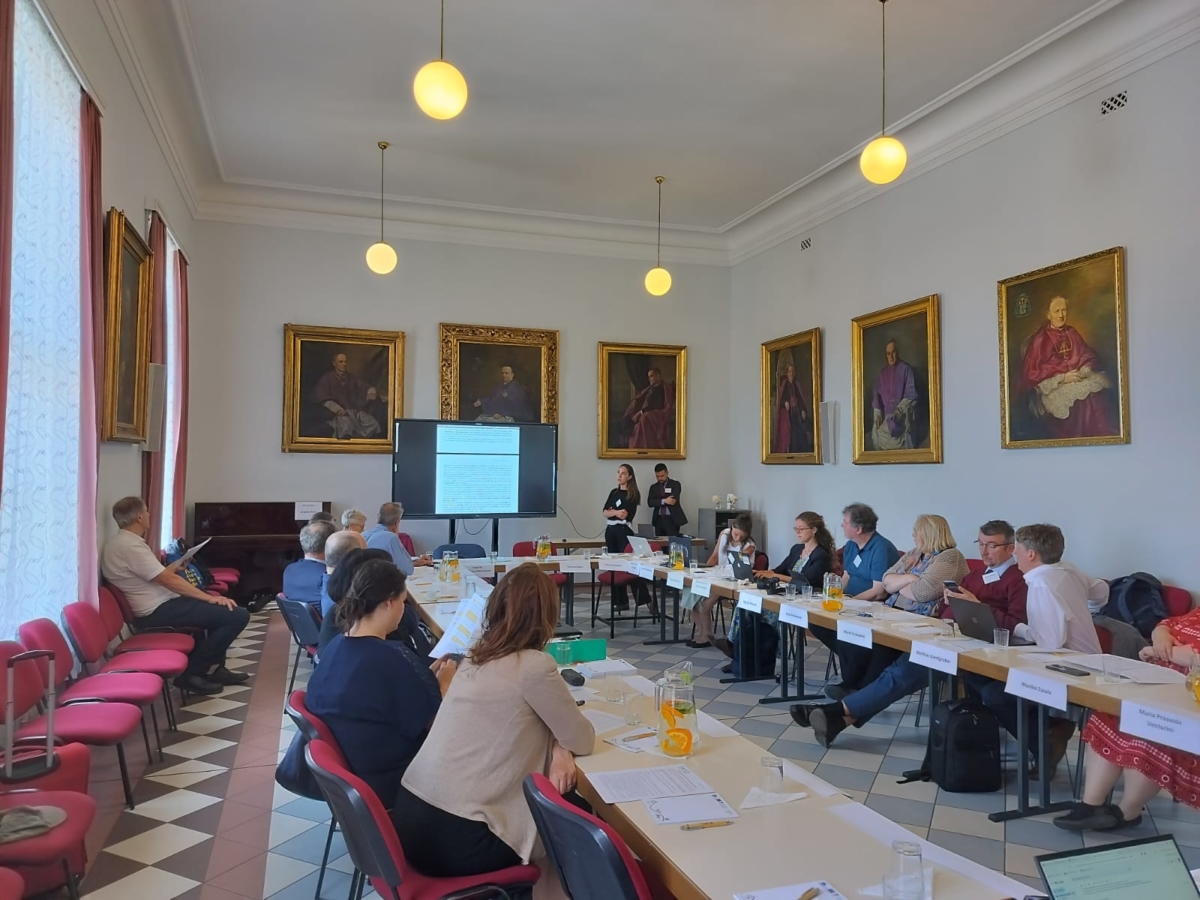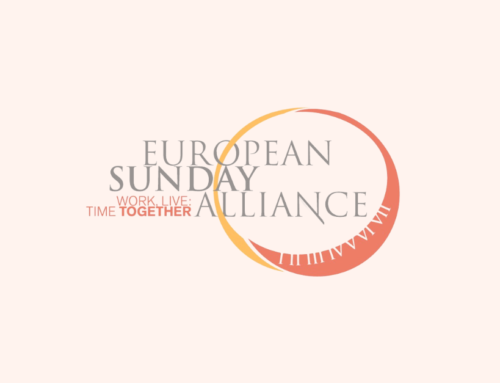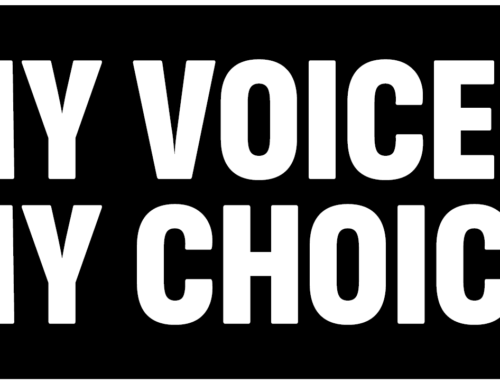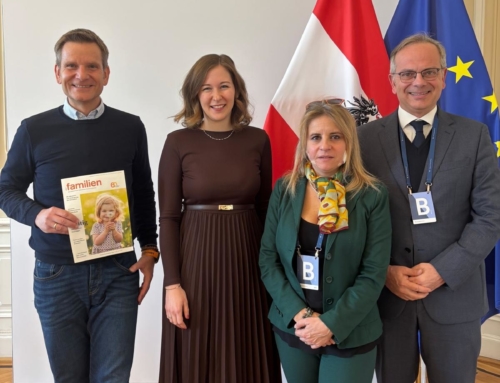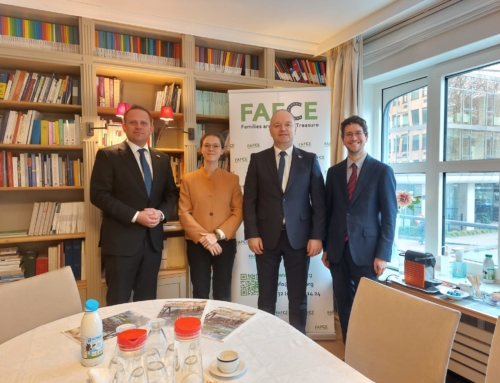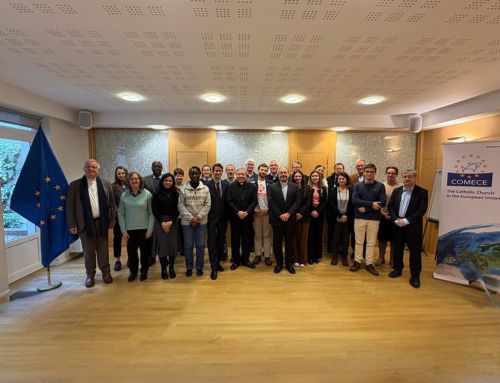Brno, 15th May 2024
The Federation of Catholic Family Associations in Europe (FAFCE) invites all candidates to the European Parliament elections, European institutions and all national governments to put families at the centre. There is no possible protection of the environment without the protection of the family.
Integral human ecology entails a holistic approach to the complexity of ecological problems, uniting the cultural, political, social and economic dimensions of this reality.
Recalling the Laudato Si’ Encyclical Letter and the Declaration “Dignitas Infinita”,
Recalling UN General Assembly Resolution A/C.3/78/L.15 on Preparations for and observance of the thirtieth anniversary of the International Year of the Family,
Recalling the European Commission Communication on the Demographic Toolbox,
Recalling FAFCE Board Resolution, Families for Sustainable and Integral Development adopted in Strasbourg on 26 October 2021,
Our Federation:
- Welcomes the 30th Anniversary of the UN annual designation of the International Day of Families, which this year aims to raise awareness on the role families can play in the ecological transition;
- Underlines that human dignity of every human person prevails over and beyond “any circumstance” and context;
- Believes that protecting family life would naturally lead to the protection of integral ecology, recalling that “it belongs to human beings’ dignity to care for the environment, taking particular account of the human ecology that preserves their very existence”;
- Believes that the family is the best ally to secure livelihoods, protect biodiversity and to combat environmental degradation promoting a collective sense of responsibility and climate-neutral consumption; expresses its concerns on the increasing poverty of young families and their children in Europe; recognizes the role of families and family networks in the preservation of our common home; underlines that child poverty is family poverty;
- Believes that a simple and moderated lifestyle ensures a lasting and necessary orientation for a good life, for a life in dignity, versus a self-centred culture of instant gratification, addictive consumerism and exacerbating individualism, which promotes the idea that everything can be bought, any time, at any price, even human life; underlines that health and medicine are not supposed to satisfy individual desires, but to serve the Common Good, always respecting life and human dignity; calls on an international ban on surrogacy, in line with the Declaration of Casablanca;
- Calls on European institutions and national governments to respect the primary role of parents in the education of their children, and consider them as allies in the ecological transition, as parents are the solution to the transmission of the respect and admiration for our Creation in our future generations;
- Expresses concern by the demographic winter in Europe, and the fact that parents “would want to have more children than they actually do”; underlines that “there cannot be integral ecology without intergenerational solidarity”, as a basic question of justice; from this perspective, calls for family and demographic policies to be considered as investments for the maintenance of rural areas and intergenerational balance, both essential to any sustainable development;
- Invites candidates to the European elections to commit to the protection of human dignity at all stages of life, with special regard to pre-born children, people with special needs, and of our seniors, as the value of a society is measured by its protection of the most vulnerable; also invites them to promote a human environment open to both the young and the elderly, as they are the energy – the seed, and the new lives, on the one hand, and the fruit maturity and the stories and wisdom, on the other – and the reminders of the sense of life to the whole of society;
- Recalls that the future can only exist with future generations, who are the core resource and gift of Creation; reminds that children are a gift and represent a source of responsibility for their parents;
- Calls on candidates to the European elections and to national governments to put the protection of children from pornography at the top of their agenda, and to recognize its consumption as a public health issue; is concerned of the risks and negative consequences that the abuse of technological devices and “screen time” can have on family cohesion and children’s development, and calls for comprehensive policies of more screen free environments, promoting a responsible use of digital technologies; raises concerns on the oversexualization of children and calls to promote the right of children to a healthy environment;
- Calls on all European Parliament candidates to respect democracy and the principle of subsidiarity and the diversity of national cultures in Europe and beyond, also on family matters and related policies; supports the development of a peaceful Europe which commonly promotes policies to safeguard the Creation – a peace which encompasses social justice, the integrity of Creation and trust between peoples;
- Believes that in order to combat the consequences of climate changes and environmental degradation, it is a duty to promote a culture of family and local networks, fighting loneliness, poverty, reducing addictive consumption and promoting the family as the core of civil society.
FAFCE invites all candidates to reflect on the words of Pope Francis: “Our inability to think seriously about future generations is linked to our inability to broaden the scope of our present interests and to give consideration to those who remain excluded from development”.

